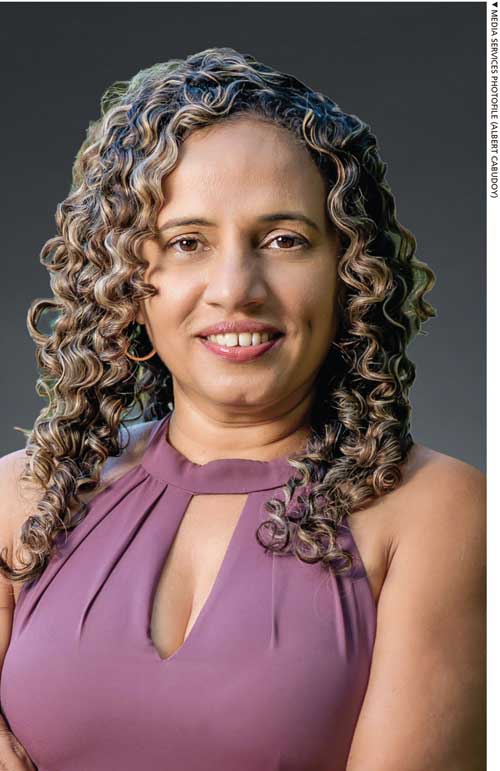Chaturika Fonseka
Risk management is the need of the hour
Q: How do you stay updated on the latest trends and developments in the financial services industry – particularly where you live, in the Cayman Islands?
A: I follow industry specific publications that focus on offshore banking, financial regulations and taxation, and subscribe to reputable financial news websites and journals that cover international finance and offshore financial centres.
Furthermore, I stay abreast of regulatory changes and updates provided by the Cayman Islands Monetary Authority (CIMA) and other relevant regulatory bodies related to the financial services industry in this country.
Q: What unique challenges and opportunities do you see in private wealth management in the Cayman Islands compared to other financial centres?
A: Among thechallenges are increased regulatory scrutiny from international regulatory bodies; evolving global regulations such as those related to anti-money laundering (AML) and combatting the financing of terrorism (CFT); changes to global tax regulations like the Global Minimum Tax (GMT), which can impact the attractiveness of offshore jurisdictions; and the rising cost of compliance due to these regulations.
On the other hand, opportunities include a tax efficient environment, which makes it attractive for high net worth individuals, while the jurisdiction is known for robust asset protection laws, making it an attractive destination.
In addition, Cayman Islands-based wealth managers can help clients diversify their investments globally – they’re known for their expertise in alternative investments including hedge funds and private equity.
And finally, the Cayman Islands is home to well-established financial services infrastructure.
Q: So how has the regulatory environment in the Cayman Islands evolved? And how does it impact private wealth management initiatives?
A: Theregulatory environment in the Cayman Islands has undergone significant changes over the years, driven by global efforts to enhance financial transparency, combat money laundering and address other financial crimes.
The Cayman Islands has strengthened its regulatory framework to align with international standards. CIMA plays a crucial role in overseeing and regulating financial services.
It actively participates in global initiatives to combat tax evasion and enhance regulatory cooperation. This includes efforts to meet the requirements of the OECD and Financial Action Task Force (FATF).
The territory has implemented and strengthened AML/CFT measures to address concerns related to financial crime. Enhanced due diligence, reporting requirements and customer identification procedures are integral components of the regulatory landscape.
With a growing number of family offices relocating their operations to the Cayman Islands, there has been a marked increase in the number of private wealth managers moving to the territory.
We’re also seeing established big banks exiting the business due to compliance risks with the industry becoming more boutique and going private.

Q: Given the prevailing global economic climate, how would you approach risk management?
A: Effective risk management is crucial for businesses and individuals alike in view of the prevailing global economic climate.
This encompasses conducting risk assessments to identify and understand the various types of risks – such as financial, operational, market and geopolitical risks.
Furthermore, investments should be diversified across different asset classes, industries and geographic regions. This can help mitigate the impact of adverse events affecting a particular sector or market.
Maintaining sufficient liquidity is essential because a well-managed cash reserve provides a buffer in times of economic uncertainty or market volatility. A culture of adaptability and agility must be fostered, as being able to respond quickly to changing circumstances can help mitigate the impact of the unforeseen.
Complying with relevant regulations is also vital as non-compliance can lead to legal and financial risks.
And a long-term perspective must be maintained. Short-term market fluctuations and economic uncertainties are common but a well thought out long-term strategy can help weather temporary downturns.
Q: How do you view sustainable and responsible investing – and how does this factor into your recommendations to clients?
A: Sustainable and responsible investing (SRI) involves considering environmental, social and governance (ESG) factors alongside financial considerations when making investment decisions.
As a responsible and forward-looking approach, SRI aims to generate positive social and environmental impacts while maintaining financial returns.
When it comes to recommendations to clients, financial success should not come at the expense of social and environmental wellbeing. SRI takes a holistic approach and considers the importance of long-term value creation.
Companies that prioritise sustainability and responsible practices are often better positioned to navigate future challenges.
FACT FILE
FAMILY
Husband – Arukshan Rajamohan
Three children
SCHOOLING
Holy Family Convent
HIGHER EDUCATION
Institute of Chartered Accountants of Sri Lanka (CA Sri Lanka)
Chartered Institute of Management Accountants (CIMA)
PRESENT OCCUPATION
Director – family office
COUNTRY OF RESIDENCE
Cayman Islands
CITY OF RESIDENCE
George Town
CV IN A NUTSHELL
Born in Colombo, Chaturika Fonseka stepped into the field of finance in 1997 when she joined Ernst & Young Sri Lanka to begin her training towards becoming a chartered accountant.
Joining KPMG Bahamas in 2001, Fonseka specialised in the financial services industry with a focus on hedge funds.
In 2005, Fonseka joined Goldman Sachs and was based in the Cayman Islands where she continued to gain in-depth knowledge and experience in the hedge fund segment as a vice president of the firm.
Following this stint, she moved to State Street in 2012, continuing her work in financial asset management, administration and investor servicing until her retirement in 2018.
Presently, Fonseka manages her family investment holding company in the Cayman Islands while balancing her work with being a mother of three.

